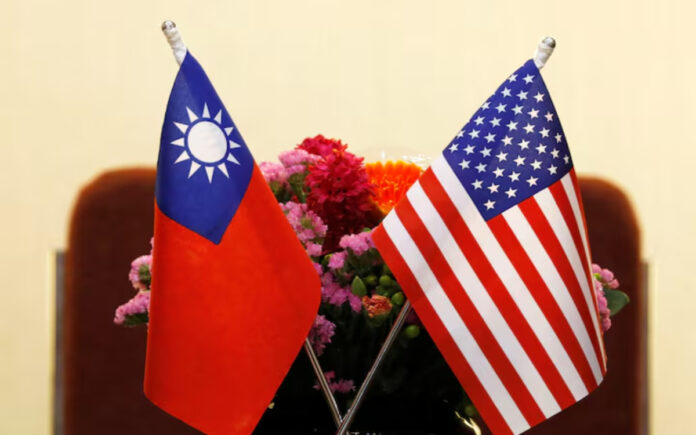Taipei: The first agreement under the Taiwan-U.S. trade initiative will come into effect on Tuesday, marking a significant milestone in economic relations between the two partners. The pact, part of the U.S.-Taiwan Initiative on 21st Century Trade, underscores Taipei’s aspirations for a future free trade agreement with Washington.
Excluded from the U.S.-led Indo-Pacific Economic Framework—launched in 2022 to counter Beijing’s growing economic and military influence—Taiwan has pursued alternative avenues for collaboration with the United States. In addition to the 21st Century Trade initiative, Taiwan and the U.S. engage through frameworks like the Economic Prosperity Partnership Dialogue and the Technology Trade and Investment Collaboration Framework.
In a statement, U.S. Trade Representative Katherine Tai highlighted the agreement’s focus on areas such as anti-corruption, customs administration, trade facilitation, and support for small and medium-sized enterprises.
“The entry into force of the first agreement under our 21st Century Trade Initiative represents an important step forward in strengthening the U.S.-Taiwan economic and trade relationship,” Tai said.
Taiwan’s Office of Trade Negotiations described the development as evidence of a “rock-solid partnership” between Taipei and Washington.
“Given the highly volatile global situation, it is of strategic significance for Taiwan to consolidate and expand its relationships with important economic and trade partners,” the statement read.
Also Read | India’s Steel Growth Raises Concerns Over Net-Zero Targets by 2070
Negotiations on a second agreement under the same framework are underway, covering critical areas such as labor standards, environmental protections, and agriculture. While Taiwanese officials have long expressed interest in securing a comprehensive free trade agreement, such negotiations remain off the table for now under current U.S. policy.
The United States continues to be Taiwan’s most crucial international ally and arms supplier, even in the absence of formal diplomatic ties.
Also Read | New Zealand Plans Greyhound Racing Ban Amid Welfare Concerns
China, which views Taiwan as part of its territory, has condemned the trade talks as a violation of its sovereignty and opposes any official exchanges between Taipei and Washington. Taiwan’s government, however, rejects Beijing’s claims over the island.



